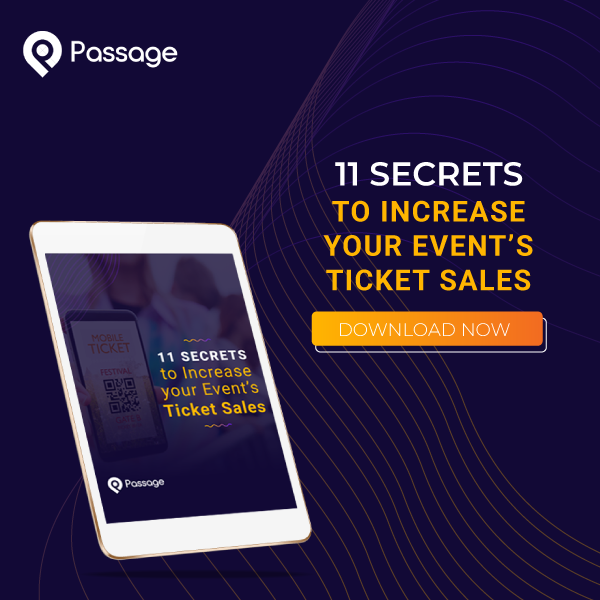Data makes the world go round - the cold hard facts and numbers can often be the most helpful when determining how to do better next time. With that in mind, creating a post-event survey will help you view your event through your guests’ eyes. Setting up said survey doesn’t have to be too complicated (in fact the simpler the better.) There are tons of free or low-cost survey tools out there, such as SurveyMonkey, JotForm, Typeform, and Google Forms.
Having guest feedback will help you feel more confident in the decisions you make about your next event. You won't be guessing what guests want; you'll actually have the data to back it up.
Short and Sweet
In order to reduce the number of guests who abandon the survey unfinished, try and keep your questions short and sweet. This will also reduce the likelihood that your guests will misinterpret the questions or get confused - thereby increasing the number of completed surveys. Keep both the number of questions you ask as well as the length of each question to a minimum and focus on being concise.
Pre-Event Data Collection
Don’t pigeon-hole yourself into focusing only on the post-event survey and what people thought of the event. That data is especially helpful when it comes to making changes to your event and catering to your audience. However, so is the demographic information you can collect before the event even starts.
For example, when your guests are registering for your event you can ask some pointed questions to gather more specific demographic information. This data, like how many women are attending your event, can give you a better sense of who your target audience should be for your event so you can tailor your event to meet their needs/desires.
Here’s a few pieces of information you may want to focus on pre-event:
- Age
- Occupation
- Gender
- Industry
- Food preferences
- References (where did they hear about the event)
- Engagement rate (clicks and interactions) on your emails and promotional materials
- Pageviews, conversion rate, and bounce rate on your website or event page
Did you know Passage offers you the flexibility to customize your event at every stage? With Passage, you can ask any custom question you want during the checkout process, offering you total control. Schedule a demo with our team to learn how.
Post-Event Data Collection
Now it’s time to collect some opinion-based data regarding your event itself. Post-event surveys can be highly effective tools for data gathering and providing meaningful insights on what worked and what didn’t at your event.
What you ask and how you ask it can have a large effect on the data you collect (i.e. the responses you receive). Before we jump into what questions you should be asking, let’s focus on some of the ground rules:
- Be specific. Asking too broad of a question could lead to confusion or answers that aren’t entirely helpful. Be clear and concise in your questions, hitting at the heart of the issue.
- Keep it short and sweet. Be intentional with how you word your questions to avoid confusion and encourage your guests to fill out the survey in its entirety.
- Limit open-ended questions. Chances are high that your guests don’t want to write 1-3 sentences in response to every question you ask. With that in mind, ensure that your survey includes a mix of question types - open ended, yes or no, rate on a scale of one to ten, etc.
- Leave room for their thoughts. It’s typically a good idea to add a last question to your survey asking if there’s anything else they’d like to say that you didn’t already cover. While not every respondent will have something to say here, it’s still useful to offer them the opportunity.
Questions to ask:
- How satisfied were you with the event (scale of 1-5)?
- What can we improve on?
- Would you recommend our event to a friend?
- Did the event meet your expectations?
- How did you hear about our event?
- Would you want to attend our event in the future?
- Was there anything missing from your experience?
- Which ___ was your favorite? (activity, workshop, etc.)
- Rate the helpfulness of our staff on a scale of 1-5
- Would you prefer to attend this event in-person or virtually?
- How was your ticketing and sign-up experience?
- Please share any additional thoughts, comments, or suggestions we can apply to future events.
- Rate the food options available on a scale of 1-10
- What, if anything, did you dislike about the event?
- Are you likely to attend an event with us in the future? (scale of 1-5)
Collect & Analyze
Once you’ve sent out your survey and received the responses, it’s time to analyze the data. Compile the survey responses and look for commonalities. If each guest mentioned the bathrooms weren’t well maintained, you may need to take a hard look at how well your venue is being cleaned and maintained. If your staff rated 5’s on the helpfulness scale, some commendations are in order.
The analyzing process can be as involved as you want it to be - data collection is what you make of it. You can start to draw correlations between the demographics you collected and the data surrounding the event itself. You may notice that certain event attendees had different experiences than others and decide on a game plan for creating a more seamless experience for everyone.
Use It Wisely
You’ve put on a great event, gathered data and feedback from your guests, and now you’re ready to put it to good use - look at you go! Don’t let all that information sit unused for long, the sooner you can implement changes and put that feedback to good use, the better.
Did you receive positive feedback regarding the ease of purchasing tickets to your event? If your ticketing platform was found wanting, it may be time to switch to a new platform like Passage - a simple and effective platform that will help you reach more fans and sell more tickets.










